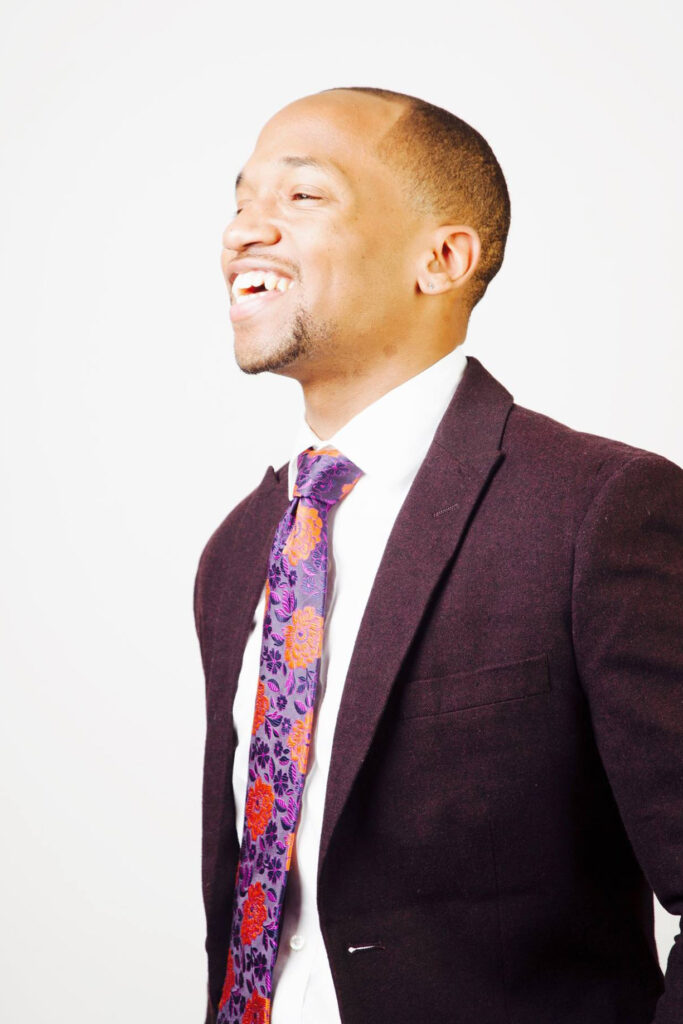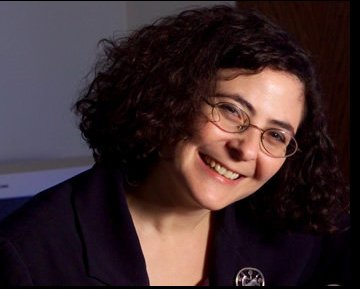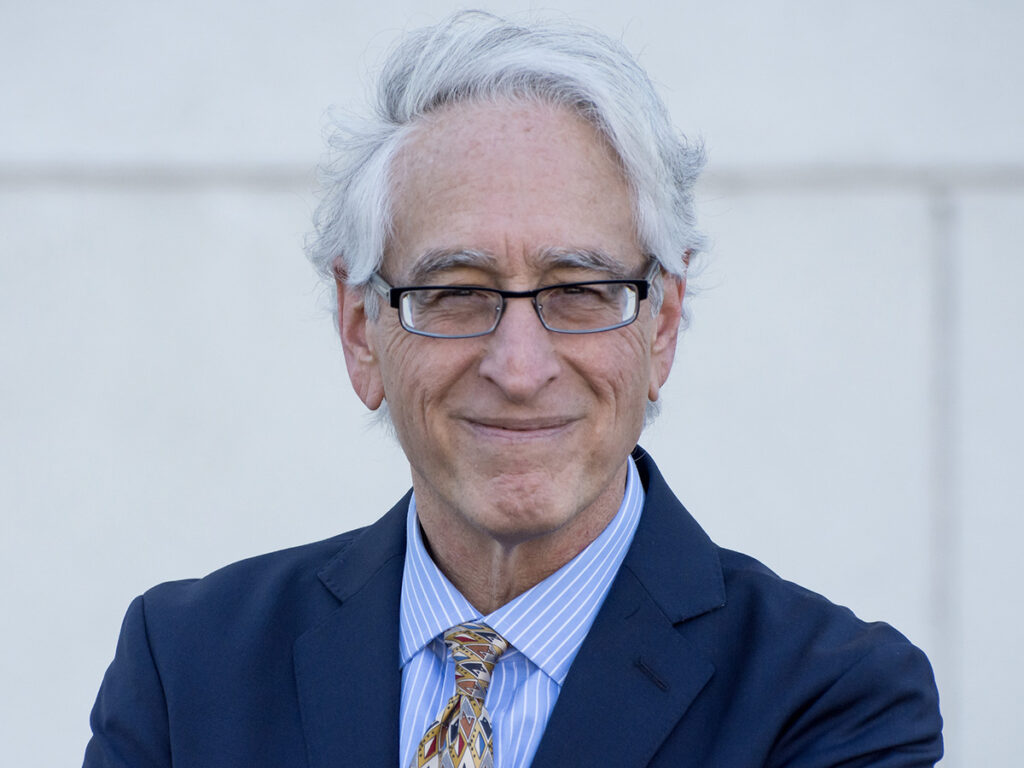Hawkins, Lasker, Lemack Honored for Teaching Excellence
Each year, three Emerson faculty members are presented with one of three teaching prizes.
This year’s winners were Communication Studies Assistant Professor Deion Hawkins (Helaine and Stanley Miller Award for Outstanding Teaching), Communication Sciences and Disorders Associate Professor Joanne Lasker (Alumni Award for Teaching Innovation), and Emerson LA senior affiliated faculty member Brad Lemack ’77 (Alan L. Stanzler Award for Excellence in Teaching).
Earlier in the semester, community members nominated faculty for each prize, which were then reviewed by the Dean’s Council, the Gold Key Honor Society officers, and the award donors and/or Alumni Board Leadership Committee.
This year, a record 156 faculty members were nominated, Interim Provost Jan Roberts-Breslin said in an email announcing the recipients.
The awards will be presented formally at the Gold Key Honor Society Induction Ceremony on Friday, April 1, 4:00-5:00 pm, in the Semel Theater.
We asked each winner about their inspirations for and secrets of excellent teaching.
Assistant Professor Deion Hawkins
Communication Studies

The Helaine and Stanley Miller Award, made possible through the generosity of Helaine Miller ’55, honors a full-time faculty member who shows “remarkable dedication and creativity,” and who encourages students to master their fields of study, with a $1,500 stipend.
Deion Hawkins, who has taught at Emerson since 2018, is a social justice advocate and critical scholar whose current research looks at intercultural and health communication focusing on ending police brutality and increasing authentic white allyship. In addition to police-induced trauma, he has studied HIV in the Black gay community; environmental racism in Flint, Michigan; and advanced care directives for elderly Black populations.
Hawkins also is director of debate at Emerson, with national debate and speech awards, and the 2019 Bob Derryberry Award for excellence in new forensics educators, under his belt. Outside of Emerson, he serves as the coalition manager for HIV Racial Justice Now and a diversity, equity, and inclusion officer for Boston Health Care for the Homeless.
He has a BA from Ohio State University, an MA from Marshall University, and a PhD from George Mason University.
What courses did you teach this year?
This year I taught Argumentation & Advocacy and Rhetoric of Social Movements.
What is your secret to excellent teaching?
This is such a tough and humbling question! I am honored to be recognized as an excellent teacher because I know firsthand how teachers can (and do) influence students to maximize their potential.
For me, I believe the ‘secret’ is about (1) empowering students and providing them the space and opportunity to be themselves unapologetically. Perfection should not be a prerequisite for success in a classroom. If you know the answer immediately, great, you are welcome in my class. If you don’t know the answer until the end of the semester, great, you are still welcome in my class! I do nothing from a shame framework or punitive position — it is always about empowerment, accountability, and support. Understanding that students are human beings first and have multiple issues to juggle at one time is also very important. It is always about contextualizing the class, discussions had, and decisions made. I am never afraid of the ‘why?’ question when asked by students.
And (2) I truly believe my passion for the topics I cover comes across. I am incredibly passionate about advocacy and social justice, and Emerson has provided me the opportunity and arena for my skills to flourish. I will always be grateful for that.
Is there a particular lesson or topic that you look forward to teaching more than any other?
Another tough question. For Argumentation & Advocacy, it definitely is getting students to understand the importance of warrants vs. impacts. For so long, students are socialized and taught that a source/evidence is the end of an argument, but they come to my class and realize that is only 70 percent of the battle. I always say, ‘O.K., so what happens when you have competing sources or different interpretations of evidence?’ There usually is an ‘a ha’ moment where it clicks and students begin to think about arguing and making a claim differently.
For Social Movements, my personal favorite would be teaching the intersections of HIV and queer activism. However, the thing I truly love about teaching social movements: It allows student voices to be centered. We openly talk about feminism, disability rights, economic justice, capitalism, Civil Rights Movement vs. [Black Lives Matter] — these are issues that students seem so eager to engage in. Seeing students so passionate about these issues makes me so excited to prepare for each class. They make me love my job. Each class is mind-glowingly brilliant.
Who was the best teacher you ever had and why?
I have to highlight multiple teachers at various aspects of my life. Growing up as a naturally inquisitive and extroverted Black gay kid in Indiana, teachers struggled to handle my personality and energy, especially when it was paired with preparation and stubbornness. By far the teacher that has had the most impact was my high school debate coach, Ms. McCandless (now Mrs. O’Connor). Walking into that debate classroom for the first time changed my life. I felt seen for the first time. In Ms. McCandless’ classroom, my quirks and questions were never questioned; in fact, they were embraced and celebrated. She never made me feel ashamed or guilty, even when I was an incredibly annoying teenager. She was the teacher that helped me find my voice and introduced me to debate.
Then, Danny Ray introduced me to collegiate teaching. He approached me to coach, and I didn’t think I was anywhere near ready. Two years later, we had a top-15 team. All of that is to say, the two best teachers I’ve ever had always saw my brilliance and pushed (and supported) me in ways that I never knew I needed. If I can give back one ounce of the passion that they have instilled, I am thrilled.
Associate Professor Joanne Lasker
Communication Sciences and Disorders

The Alumni Award for Teaching Innovation is given for “engaging students in active learning in and out of the classroom, and for fostering a stimulating and creative learning environment.”
Joanne Lasker’s teaching and research focuses on augmentative and alternative communication (AAC) for adults living with acquired neurogenic disorders. Her work has been published in several journals, including Augmentative and Alternative Communication, Journal of Medical Speech-Language Pathology, and Clinical Aphasiology.
Lasker and Dr. Kathryn L. Garrett of The Children’s Institute (Pittsburgh) created the Multimodal Communication Screening Test for People with Aphasia (MCST-A), an online assessment tool for people with aphasia (loss of speech due to a neurological condition) who may be suitable for AAC intervention. She has received funding to investigate a treatment technique combining speech-generating devices and speech practice.
Lasker has been at Emerson since 2012. She has a BA from Wesleyan University, an MA from the University of Massachusetts at Amherst, and a PhD from University of Nebraska, Lincoln.
What courses did you teach this year?
This past year I taught courses in both the online Speech@Emerson program and in the on-campus master’s program: Aphasia, Augmentative & Alternative Communication, and Clinical Methods IV & Comprehensive Exam Preparation.
What is your secret to excellent teaching?
I try to be very attuned with the students. As I am building course content and conducting class (often via Zoom), I pay close attention to how students experience the course content and participate in the learning. My goal is to keep students active and engaged throughout the learning process. Together with my students, we work to create an open, explicit learning community, in which everyone is willing to grapple with difficult concepts.
I think it helps to remember the underlying reasons for the learning we do. In the courses I teach, we are all moving toward becoming caring, thoughtful clinicians who can work with the most vulnerable populations — that is, people who are challenged to communicate.
Is there a particular lesson or topic that you look forward to teaching more than any other?
I particularly appreciate the lessons in my class that revolve around client case studies, based on people with communication challenges. It’s exciting to see students work together to apply the ideas we have been learning to ‘real-life’ scenarios. I think they are often surprised at how much knowledge they have acquired from the class. Through these activities, students appreciate how the theoretical pieces fit together to result in meaningful outcomes for a client and family. So, creating and guiding those sorts of case-based learning activities is a treat for me.
Who was the best teacher you ever had and why?
The best teacher I had was my doctoral mentor, David Beukelman, who passed away just a few months ago. He taught me by embodying his vision for the field of speech-language pathology. Throughout his career, Dave’s goal was to do work that meaningfully improved the lives of people with complex communication needs. He taught me to keep the ‘mission’ in mind by constantly asking the question, ‘What can I do to support individuals with significant communication challenges so that they can participate more meaningfully in their lives?’
Senior Affiliated Faculty Brad Lemack ‘77
Emerson Los Angeles

The Alan L. Stanzler Award goes to an affiliated faculty member who consistently receives high course evaluations, and comes with a $1,000 stipend, made possible through the generosity of former Trustee Alan Stanzler.
Brad Lemack is an award-winning talent manager and entertainment publicist, educator, author, content creator, business consultant, and coach. He has taught Emerson students in LA since 1995.
Lemack is the author of The Business of Acting: Learn the Skills You Need to Build the Career You Want (2002), The New Business of Acting: How to Build a Career in a Changing Landscape (2010), The New Business of Acting: How to Build a Career in a Changing Landscape – The Next Edition (2018), and The New Business of Acting: COVID Update (2020). He is also the host of the YouTube series, Inside the Business of Acting, writes The Business of Acting Blog, and is a contributing columnist for Backstage.
He holds a BS from Emerson, and an MA from California State University.
What courses did you teach this year?
The Business of Acting, Entertainment PR, and a section of the Internship course.
What is your secret to excellent teaching?
Secret? Hmmm … I don’t think there is a ‘secret,’ really. I think success in the classroom in the result of creating a safe, comfortable environment in our teaching space, respecting the opinion equally of everyone in the room, encouraging thoughtful and sensitive conversation, and helping students both recognize their potential and their value to community and industry.
Is there a particular lesson or topic that you look forward to teaching more than any other?
In the Entertainment PR course, ‘unpacking’ the details of a celebrity crisis and planning a strategy for how to begin to repair that personal and brand damage is always full of teachable moments in the classroom for all of us.
In the Business of Acting course, the ‘a-ha’ moments for students as they begin to discover the tools and create a strategy for launching and building their professional career journeys is joyous to nurture, mentor, and see unfold.
In the Internship course, observing students begin to apply what they have learned academically to the professional world through experiential learning is very powerful. Often those experiences challenge them in unique ways. I love the prep work we do together in that course to ready them for the day after graduation and beyond.
Who was the best teacher you ever had and why?
I have had a lot of great teachers throughout my life and most of them weren’t faculty; they were my students. We all observe and participate in the world through our own unique lens. The perspective of others can be very helpful, very exciting, very powerful in understanding the world we live in from lots of points of view. There are tons of teachable moments in that … and they’re never confined to just a classroom.
Categories